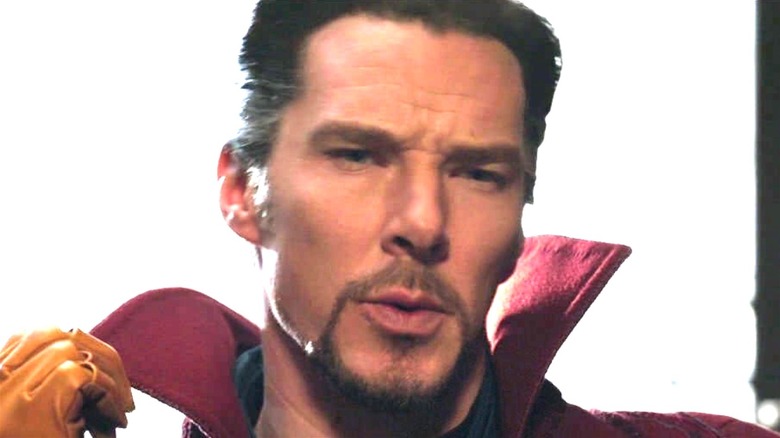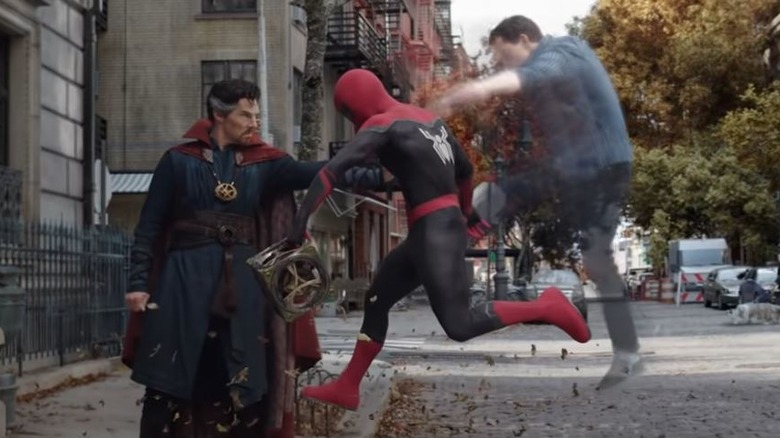This Is How The Doctor Strange Sequel's Delay Affected Spider-Man: No Way Home
Contains spoilers for "Spider-Man: No Way Home"
It's no secret that the many delays brought on by the COVID-19 pandemic have wreaked havoc on the scheduling of Marvel Cinematic Universe's Phase 4. Since the phase just happens to be an incredibly ambitious effort that finally brings the multiverse in the MCU over the course of various works, one can only wonder how many grey hairs the situation has caused for the people who supervise the overarching narrative.
The MCU project that'll presumably do some extremely heavy lifting to explain and expand the concept of the multiverse is the appropriately titled "Doctor Strange and the Multiverse of Madness." Unfortunately, it's also one of the Marvel movies that have suffered the most from the situation. The upcoming "Doctor Strange" sequel has gone through numerous delays and reshoots, and Disney has pushed its release date more than once. As such, the movie, which was originally supposed to hit theaters on May 7, 2021, will now premiere on May 6, 2022. Now, it has transpired that the delay had a pretty drastic effect on "Spider-Man: No Way Home," as well.
Writers of Spider-Man: No Way Home had to rethink Doctor Strange's motive to oppose Spider-Man
The MCU has cracked the concept of time travel and is rapidly doing the same to alternate universes, but in the real world, things have to follow a chronological order that won't confuse the fans ... or worse, spoil an upcoming movie.
In an interview with Variety, "Spider-Man: No Way Home" writers Chris McKenna and Erik Sommers detailed their efforts to bring together the movie's ambitious story, while the landscape of Phase 4 shifted around them like Doctor Strange's (Benedict Cumberbatch) Mirror Dimension.
"We were actually working off of things that were happening in 'Doctor Strange 2,' and trying to incorporate them into our script," McKenna said, and noted that the original script's Strange knew all too well that the multiverse is not to be messed with — which is why he was so opposed Peter Parker's (Tom Holland) attempts to give the alternate-universe villains a new lease in life.
"When we started writing, [Strange] knows firsthand the dangers of screwing with these things," McKenna explained. "Then we changed it so he was a person who doesn't know that much about the multiverse. But that makes it even more frightening, to start fooling around with these things, because it's the fear of the unknown. Either way, he was the voice of reason going, 'You don't mess with the fate of an individual' — and Peter Parker being naive enough to go, 'Why not? Why can't we save these people?'"
Judging by the overwhelmingly positive reviews of "Spider-Man: No Way Home," this change didn't hurt the movie at all ... though now, you can't help but wonder what in "Doctor Strange 2" would have made the sorcerer so fearful of the multiverse.

